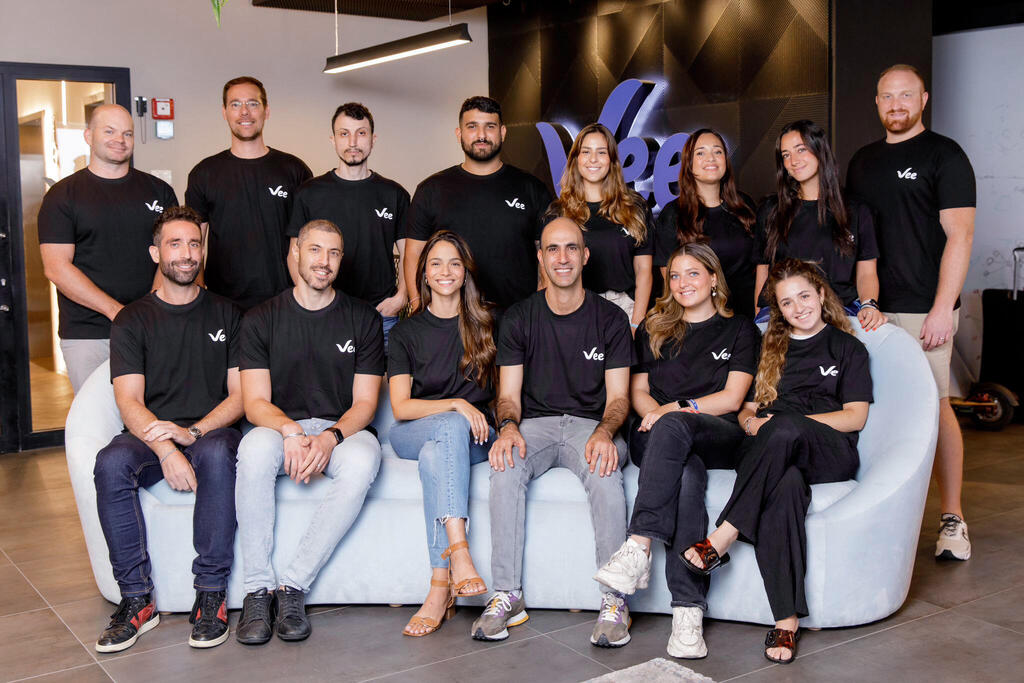
After layoffs and pivot, Vee raises $7M for nonprofit management solutions
After layoffs and pivot, Vee raises $7M for nonprofit management solutions
Initially founded to help nonprofits develop their activities by connecting them with organizations and their workers, Vee is now leveraging AI agents to help nonprofits scale
After raising $12 million in Seed funding in 2022, but then having to lay off almost 70% of its team that same year, Israeli startup Vee announced on Wednesday that it has raised another $7 million in funding for its AI-driven platform for nonprofit management in the U.S.
The round was led by TLV Partners, with participation from SOMV, Oryzn Capital, Meitav Dash, Disruption Ventures, and existing investors. This funding brings the total investment in the company to $21 million since its inception.
Vee was founded in 2020 and is led by young entrepreneur May Piamenta, co-founder and CEO, Avi Amor, co-founder and COO, Idan Tubi, CTO, and Noam Mendelson, VP of Sales and Growth. It managed to raise a total of $13.5 million for a platform that hosted a wide range of volunteering opportunities such as food aid, animal welfare, youth mentoring, and environmental initiatives, enabling HR teams to find, coordinate, and share charity events and in effect build a community for giving back inside the company.
However, it was hit hard by the crisis in tech and after scaling to as many as 50 employees, ended up quickly cutting back to 16. That remaining team, which currently numbers 20 people, most of whom work in the Ramat Gan office, with the rest in Miami, went on to develop dedicated AI agents for nonprofits worldwide. These virtual employees allow organizations to scale their operations without hiring additional staff. Currently, the platform features two primary products: Maggie, a virtual assistant for creating, automating, and managing social media for organizations, and Grant, a tool for grant applications that according to the company boasts success rates comparable to those of human professionals. Grant submissions cost less than $99 each, compared to an average of $1,500 charged by professionals. These tools can be interacted with via email and text messages, operating independently and proactively, enabling nonprofits to allocate more resources to their core mission instead of operational tasks.
Within a year of the pivot, Vee already serves over 100 clients in the U.S., including well-known organizations such as the Network of Jewish Human Service Agencies, Cloud Veterans, PCOSAA, and Lights and Sirens. Since the outbreak of Operation Iron Swords, Vee has provided free platform access to initiatives supporting Israeli society in areas like public relations and fundraising for the war effort.
In a conversation with Calcalist, CEO Piamenta said the company did not change its goal even as it evolved. "We started with the aim to help nonprofits succeed all over the world. We launched at the height of the coronavirus pandemic with a physical solution to assist people with their needs in various fields. Over time, several things happened: the pandemic passed, people returned to their offices, and the market changed significantly. We were among the first to be affected and realized this very quickly. When budget cuts began, we were among the first to be hit. We decided to pause and reassess what needed to be done with our product and model.
“As soon as we realized we were heading for a significant product and fundamental change, we faced the most difficult challenge for an entrepreneur. We knew we couldn't make the necessary changes without laying off workers. The funds we raised allowed us to make this big shift. We returned to the core problem: the biggest pain point for nonprofits is to survive, and they need a team. Previously, we provided real people; now, we sought to bring them value through technology. This led to the development of the products we now offer.”
The U.S. nonprofit sector comprises 1.8 million organizations and is the third-largest sector in the country, with over $2.9 trillion flowing into it annually. Despite this, the industry hasn’t undergone a technological revolution, with many processes still performed manually. In the past two years, there has been a trend of mergers and acquisitions among technology companies operating in the U.S. nonprofit sector, indicating growing interest and high fundraising amounts in recent years.
“Our two most significant achievements were that our key investors continued to believe in us, and our team remained committed throughout the transformation process,” added Piamenta. “We reorganized and adjusted our shareholders with the goal of attracting new investors. This was not a down round but a significant structural change in our shareholders' holdings. The transition was smooth, and they understood the significance of the change."















